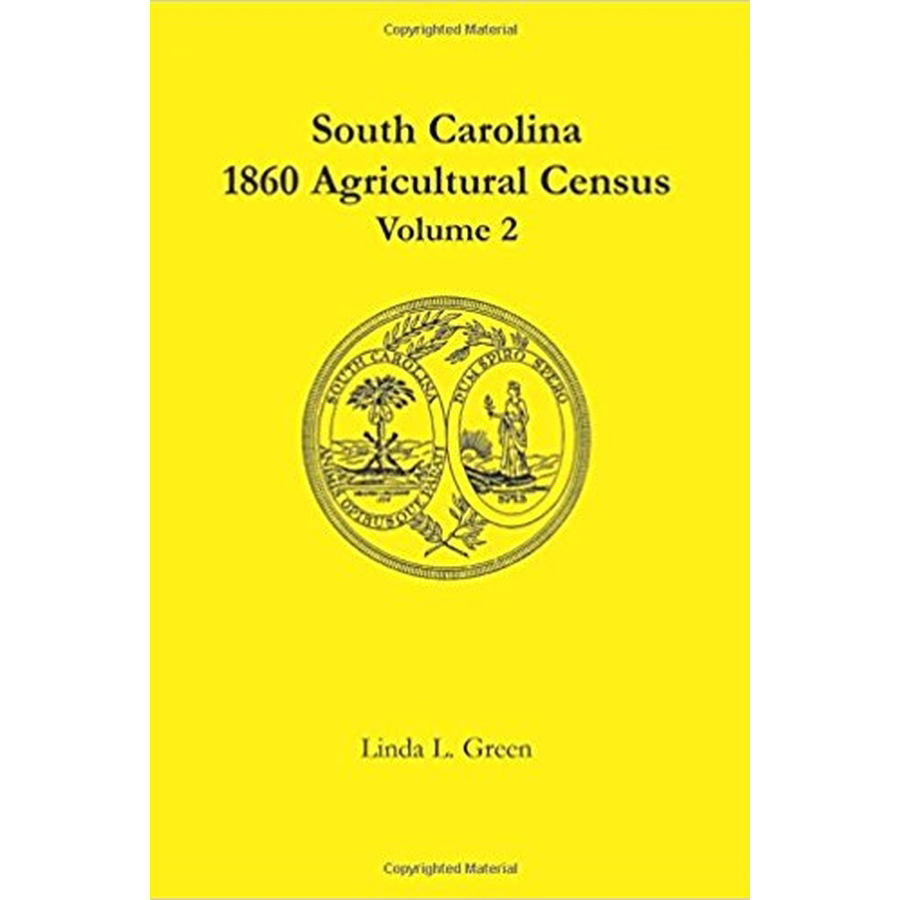South Carolina 1860 Agricultural Census, Volume 2
Couldn't load pickup availability
Agricultural census records yield valuable genealogical information regarding individual landholdings, slave holdings and production. The agricultural census also reveals economic and social details that it was not specifically designed to demonstrate. For the historian, these records furnish a minute and increasingly complex view of the agricultural economy of the state. They are equally valuable as a guide to the social structure of rural South Carolina during a period of momentous change that transformed the system of labor, revolutionized the ownership of land, and finally ended the state's reliance on low-country crops.Six of the census's original forty-eight columns have been transcribed here: name of owner, improved acreage, unimproved acreage, cash value of the farm, value of farm implements and machinery, and value of livestock. Volume Two covers the districts of Georgetown, Greenville, Horry, Kershaw, Lancaster, Laurens, Lexington, Marion, and Marlboro.
Linda L. Green
(2005), 2006, 8.5" x 11", paper, index, 194 pp.
ISBN: 9780788441363
101-G4136
